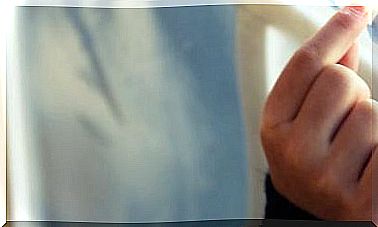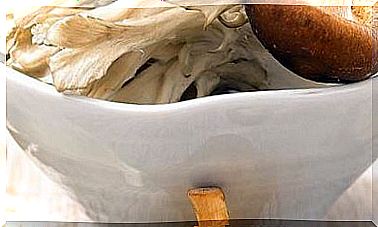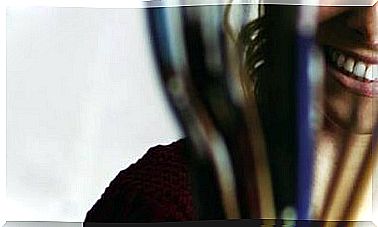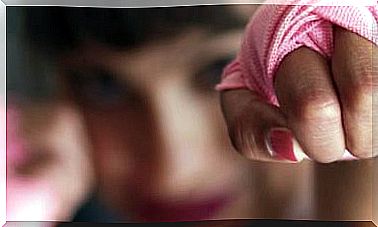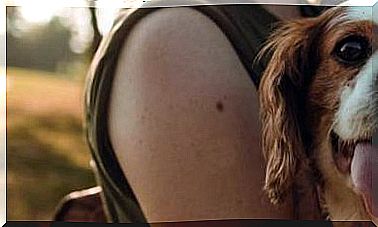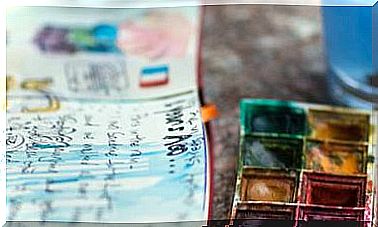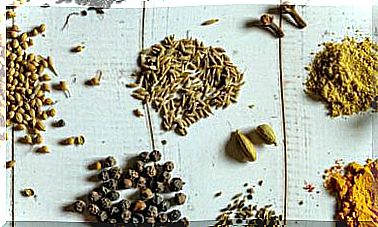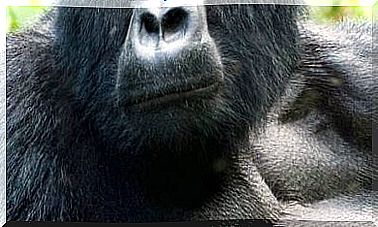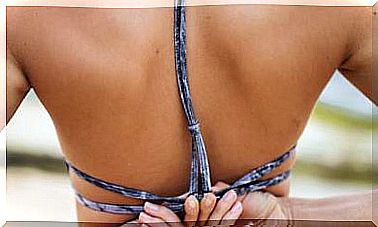“The Diet Should Generate Health And Peace”
Dr. Jorge Pérez Calvo from the Institute of Biological and Natural Medicine of Barcelona, author of ¡Revitalízate !, reveals the keys to energy nutrition.
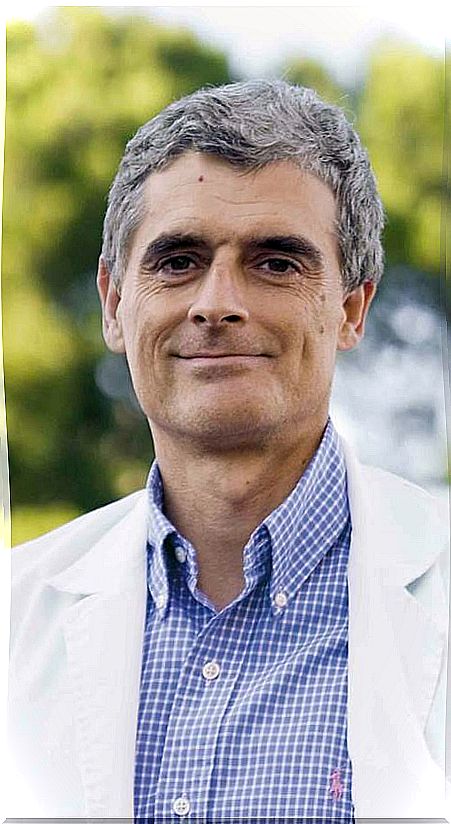
The Dr. Jorge Perez-Calvo is a reference to the natural and energy medicine. In addition to his work in the office of the Institute of Biological and Natural Medicine, he carries out an intense informative activity through courses and conferences. He has published several books, including Energy Nutrition and Health (Ed. Debolsillo) and ¡Revitalízate! (Ed. RBA).
In his consultation, the patient can receive a wide variety of therapies, both traditional and modern : neural and neurofocal therapy, homeopathy, homotoxicology, acupuncture, orthomolecular nutrition, chelation treatments, colon hydrotherapy …
He was director of the Kushi Institute, which promoted Michio Kushi’s macrobiotics and trained people who later decided to make organic food. Dr. Pérez-Calvo, who exhibits both cordiality and poise in his gestures and words, welcomes us in his office to talk about his career and about the topic that interests him the most, energy nutrition.
Lifelong learning for a different interpretation
– How did your interest in natural medicines begin?
–It was by chance. At the age of 20, coming from requesting an extension of the military, in a bookstore, and I saw a book that contained a lot of information on natural and oriental medicine. I was dazzled. In my environment, 32 years ago, natural medicine did not exist. I was studying Medicine at the Vall d’Hebron Hospital facilities, where hard allopathic medicine was practiced. Natural medicines were not considered and there was hardly any research.
–Were you disappointed with orthodox medicine?
– I was passionate about Medicine, but the way they taught us, I couldn’t find laws, norms, logical formulas such as there are in Physics, Mathematics and even in Biology. In Medicine there was no connection between the information we received. On the other hand, in natural and oriental medicines I found cosmological explanations, of the integration of man in nature, which led me to understand physiological normality and pathologies, as well as the use of food or plants in treatments.
Suddenly the sky opened to me and in fact it was difficult for me to finish my degree because there was a contradiction between the amount of things I had to learn to pass and the logic and simplicity of Hippocratic medicine or Eastern medicines. I finished my degree, but with a different vision of Medicine.
“By assessing the patient globally, natural medicine is faster, more efficient and without side effects.”
–And now she teaches classes at the University…
–I have given classes in masters in Personal Growth and Naturopathic Medicine for the University of Barcelona. But above all I give courses on Nutrition from the holistic and energy point of view, in which we try to make people understand the energy effects of food and plants, offering answers to questions such as which fruits, vegetables or spices are suitable or not in each specific circumstance, what differences are there between the flavors and their application. It is a practical and effective science.
–He learned macrobiotics with Michio Kushi…
–I started with Kushi and then I delved into Traditional Chinese Medicine with Felipe Torres, a great naturist. Later I studied Ayurveda and Modern Nutrition, which have very interesting things. The most revealing, most revolutionary course that I have ever followed was taught by Ramón Segura, Professor of Physiology at the Autonomous University of Barcelona, who came to work with NASA. He was a pioneer in linking the quality of food and its effect on health.
– Is it still based on the principles of macrobiotics?
–The laws of the universe are some, but there are different ways to deepen them. You can learn five or six biological rules and then you find that there are others that work too. Macrobiotics is Japanese and therefore very practical and decisive. But Chinese medicine is a system developed over the centuries and allows you to go deeper. Ayurveda, the classical medicine of India, with a more subtle and spiritual tendency, also teaches very valid things. The good news is that all the medicines are in resonance.
–Then make an integration of all those disciplines. Are there no contradictions?
–If you apply it well, there are no contradictions. There are things in conventional medicine that I will never do, and others that I will. In the event of meningitis, I will administer an antibiotic and give natural preparations to help you. But I will very rarely treat bronchitis with an antibiotic. The basic criterion is that of energy or natural medicine. I can use an ultrasound, a blood test, or look at a drop of live blood through the microscope [the doctor points to the 14,000-magnification microscope next to his table] because they provide a lot of information.
Then the grace is to make an interpretation from a puzzle where the visions of Chinese medicine, Ayurvedic, Tibetan, modern nutrition overlap … Often the gaps from one point of view are filled with the perspective of another . Then you can treat diseases in a different way that do not have an explanation or a way out in conventional medicine.
-It is an open look.
-Much more. Many more aspects of a problem are looked at. That is why it is not true that natural medicine is slower. Faced with a specific problem such as acute inflammation could be debatable, but taking into account the global situation of a patient, I would say that natural medicine is faster, more efficient and without side effects.
Energy feeding: therapy through diet
–What does energy supply consist of?
–Each food has more than one hundred properties depending on whether it is a plant, whether it is the root, leaf or stem, whether it is a marine or terrestrial animal, the place where it has grown, the taste, the temperature, the effect on acidity or alkalinity, ayurvedic doshas, chemical composition … Knowing all this is very useful.
For example, to a nervous person who wants to eat more fruit, I will not recommend apples, but peaches or bananas. Instead, these are not appropriate for a phlegmatic person.
If you do not take into account all the properties of food, you can make mistakes such as trying to lose weight by eating salads and meat. Animal protein tends to accumulate on the butt and legs. When you stop the meat-based weight loss regimen, the fluid and fat tend to accumulate in those places and all the weight is regained. Similarly, there are people who try to lose weight with salads and fruits, but they are always bloated and do not lose a kilo. What they need is energy, vitality, no more or less calories. This vitality generates internal heat that dissolves fat.
– What foods provide it?
–Millet, quinoa or buckwheat, for example. That is, more energy foods are consumed and weight is lost. It is possible because you have substituted cold foods for hot ones. The ancients called internal fire to the energy that accumulates in the abdomen. They called that area the cauldron, because it was where the cereal and the legume that provided heat and vital energy were heated. That is why a person who is interested in losing weight does not want raw and cold foods. On the other hand, fruits and salads are suitable for those who have hypertension, migraine or stress, eat meat and drink alcohol.
–Choosing food is therefore a very complex matter …
–It is not. The culture that helped us has been lost and it must be recovered. Anyone can drive a vehicle or a mobile phone. You only need to learn four things with the advantage that, in food, the principles are captured instantly, because they are logical and intuitive. For example, if I say that the carrot, which is a root, has a descending, centripetal energy, and that it does the same in the body, it is captured quickly. It’s simple but someone has to explain it to you for the first time.
Know the foods to avoid extremes
“Isn’t it enough to do what your body asks you to do?”
–If the body is unbalanced in one direction, it asks you for things in the opposite direction and is carried away by habits. Someone used to drinking cola will drink it when thirsty, but could choose water. If you eat too many very contractive foods, look for the very expansive ones. That’s why many people go from meat to sugar, from sugar to eggs, and from sugar to chocolate, that is, from end to end. Ideally, choose focused foods, such as rice or monkfish. The first day may be difficult, but then the body will balance itself and begin to choose what is best for it.
– How can you follow a balanced diet if you eat outside the home?
– You have to be clear about what you can eat and what you can’t. If there is little variety to choose from, you can always go for something sober, which is also good from time to time.
“What did you eat today?”
–We went to a Japanese restaurant and I had rice with nori seaweed, grilled fish and spinach salad. If I had eaten in another restaurant I would have ordered rice and vegetables or a plate of pasta and vegetables. For breakfast I have oatmeal flakes with dehydrated strawberries, pine nuts, almonds, cinnamon sticks and lemon peel. And last night I had grilled tempeh (fermented soybeans) for dinner with green beans, carrots and quinoa.
–What foods do you advise a person who feels good and wants to maintain their health?
– Whole grains cereals. They are revolutionary. The grain goes from being exposed to the natural elements to a bag and to the plate. This unhandled grain can retain the ability to germinate for centuries. It has a very high energy coherence. If you eat grains you have a good energy input. You can also eat organic vegetables and legumes, which are the great restorers of organic substance.
The body is a balanced mix of energy and substance. We are actually conductors of energy, like a wire that is heated by passing electricity. The same thing happens to us. Energy enters through the head and bioenergy flows throughout the body to the earth. A balance must be sought between the energy that passes, and that in some way wears out, and the replacement of the tissue.
“If you eat a lot of meat, you are tense, if you go overboard with fruit, you get tired, and if you eat sugar, you will go to heaven.”
–Is meat restorative, does it add substance?
-Absolutely. First of all, almost all meat today is an adulterated product. In addition, the design of human teeth shows that we are poorly adapted to eat meat, especially in warm and temperate climates. In Nordic regions it may be necessary to eat meat: we have the capacity to adapt to many climates and we can be 100% carnivores or 100% vegetarian. When a town adapts well to its environment it obtains health, but the design is dictated by nature.
In a temperate climate like ours, fish is better than meat. Fish are always in motion, flowing, their meat is light. The further away from us the protein is in the chain of biological evolution (mammals, birds, fish, plants …), the more easily it is eliminated and the less it interacts with consciousness. This is also positive because it involves less aggressiveness, less emotional tension, less obsessive thinking.
– Can we appreciate the action of food on our mind?
–We have been losing the ability to relate our physical and mental state to what we have eaten. Before, when you dreamed or felt bad, grandparents asked what you had eaten. It is not difficult to look at this relationship: a little information is enough about the nature of each organ, the emotions with which they relate, what is going well or what is going wrong … When you have learned that these links exist, you realize that If you eat more meat than necessary, you are tense, if you go overboard with the fruit, you get tired, or if you take sugar, you will go to heaven …
–Can you comment on the effect of certain foods? Tomato, for example.
–If it is organic and mature, it is energetically refreshing. Cooked helps to relax the liver and calm aggressiveness. The non-ecological is usually too acidic and many people feel bad because it is very aggressive with the tissues.
–Macrobiotics advise against tomato…
–I am not a strict macrobiotic. I have a lot of respect for macrobiotics, and Michio Kushi’s work is very valuable. I wish everyone followed the basic lines of macrobiotics. But the tomato is not harmful. Some people, if they have digestive strength, can do well during the warm seasons, especially today since we are subjected to an invasion of yang energy through light and electromagnetic pollution. Cell phones and computers overheat us.
-Integral rice.
–Provides energy and balance body and mind. It tones the lungs and intestines, is purifying and diuretic. It is perfect for meditation: it increases lucidity, awareness of being. It is interesting to eat it frequently, three or four times a week, accompanied by legumes, especially today, when there are so many dichotomies, so many tendencies towards extremes. Rice is very inclusive. It is important that it is well cooked to save energy in the digestive process.
–Azukis, the little garnet colored Japanese beans.
–They are excellent for strengthening the heart and kidneys, for circulatory problems and for losing weight. It is the only truly alkalizing legume. Anyway, I don’t recommend eating it more than three times a week. You must also consume other legumes that tone the substance, such as beans, lentils, chickpeas, soybeans. But legumes are always taken with twice the amount of cereals. If you eat too much legume, the thought gets too excited.
–Umeboshi plums.
–A seasoning that helps to alkalize the diet. A few drops of umeboshi vinegar are an excellent digestive. They are very salty and are taken from time to time, not every day. Although it is considered a Japanese food, in Catalonia, in areas of Girona, plums were also made in brine and they were given to children and young people when they fell ill. As they also made rice dishes with seaweed. These traditions, which have been lost in Spain, have been preserved in Japan.
A diet adapted to the environment
–You recommend consuming local foods.
-Yes. There are products where the origin is not so important. This is the case of yang foods, such as salt. There is little difference between consuming Himalayan or Mediterranean salt. The same can be said between the algae of Japan or those of Galicia. However, a fruit or a vegetable, which is very subject to environmental conditions, like us, it is preferable that it be local. So we can put into practice one of the definitions of health that I like the most: the ability to adapt to the environment in which you live.
“Health is the ability to adapt to the environment in which you live. You have to eat the environment to be part of it.”
– When should we worry about diet?
– Whenever something does not work in life, you have to review what you eat, because you need to improve physical, mental and emotional resources. Focusing on food is essential because at the same time motivations, interests, thoughts, family harmony, daily habits, if you are working too much or too little are reviewed … What works most often is to adopt a diet as much as possible. Simpler better, that helps to take perspective, neutrality, so that the conscience is settled in the heart and the body, and serenity and intuition are recovered. The macrobiotic recommendations are effective: eat brown rice, some legumes and vegetables, all well cooked and chewed, without fat and without more. It takes two or three days to regain body awareness.
– The basis of your treatments is food?
–Within integrative medicine we do many things depending on the patient. Some simply want to improve their condition while others have fibromyalgia, neurological and degenerative diseases. The basis of therapy is food and then you can do a thousand things, such as colon cleansing, acupuncture, neural therapy and many others. But the patient who introduces changes in his diet always obtains positive results, learns to take care of himself and responds well to other treatments.
– But the diet is not the most difficult to change?
–There is always a small adaptation crisis. But when a diet adapted to the human biological program is followed, the body responds. It’s like introducing exercise to a sedentary person. If you do it well, you immediately notice that it benefits you and you do not stop doing it.
“When a diet adapted to the biological program of our species is followed, the body responds.”
– Is your diagnosis more western, technological, eastern?
-Is mixed. We can request analytics, scans or ultrasounds, but above all I follow traditional Chinese medicine, observing the pulses, the tongue and especially at what times the symptoms occur, what reactions they cause, in order to understand the nature of the organ involved. And I am particularly a physiognomist. There is an old physiognomy that is very helpful.
“That is a temptation.” Could you make a diagnosis from physiognomy as an example to readers?
[Addressing Manuel] –You have to strengthen the yin of the kidneys and the blood of the liver. Do you work long hours in front of the computer?
–Too many.
– Your liver blood is low. You also have a tendency to dry out the liver, which is overheated. This makes the liver uncomfortable and indirectly affects the kidney, because the kidney gives its substance to the liver and empties it of yin.
– In what features do you perceive it?
-In the structure of the head, the color of the skin, the hair … You need to eat red foods and kidney beans, because the kidneys are making an effort because the liver demands too much, probably because you overheat the eyes . Primrose oil will also do you good.
-Thank you. I will follow your advice.
